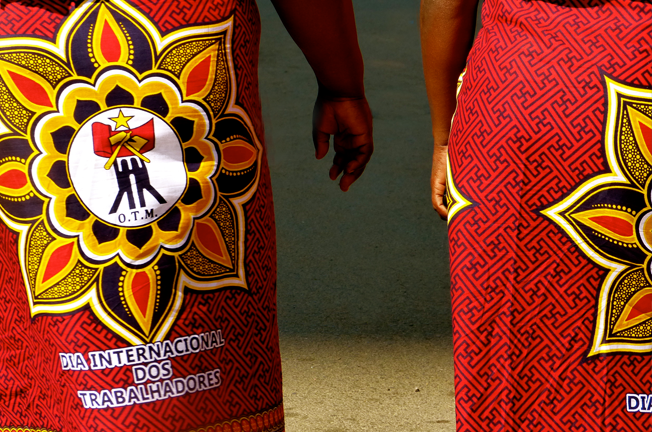MOZAMBIQUE’S COLOURFUL CAPULANAS
A capulana marks every major event of a Mozambican woman’s life
A Mozambican woman can tell the story of her life through her stash of capulanas neatly folded in a chest or basket.
The capulana is a colourful African cloth that’s an essential part of Mozambican daily life. It’s in constant metamorphosis: a skirt, dress, turban, shawl, baby carrier, sheet, curtain, tablecloth, blanket, bandage, cleaning cloth, market bundle, dust shield, swimming costume or shroud.
In the chest, a woman might keep a faded capulana from her childhood, worn ones inherited from her mother or granny during a rite of passage, those marking her lobolo and wedding, her babies’ first wraps, the one she wore at her father’s funeral, at her daughter’s wedding, or to celebrate the end of civil war in 1992.
The cloth comes in two designs: bright stylised flowers, fruit, and animals, with a border fringe and a central motif, or a soft plaid pattern. Different regions have their preferences of colour palette and style, and everyone knows that red, black and white patterns are reserved for traditional healers.
During the mid 19th century the cloth came from India and Indonesia via Portuguese-Arab-Asian trade. In the 20th century, Mozambican factories churned out their own capulanas until the almost 16-year-long civil war, and later globalisation, decimated local production. Today capulanas once again come from the East, but this doesn’t seem to matter. They still symbolise Mozambican identity as much as marrabenta and chicken peri-peri.
The cloth has enjoyed something of an update recently, with Mozambican fashion designers like Taibo Bacar using it to design everything from short sundresses to power suits like those worn by the former First Lady, Maria de Luz Guebuza.
But however a woman chooses to wear it, its symbolism is not forgotten. Before packing them away in the chest, she might unfold the ceremonial mukumi, made of two capulanas joined by a strip of white lace in the middle. Mukumi is a prized gift for newlyweds as a nuptial bedcover. Wrapped in a mukumi, a widow grieves her husband. She might say softly, this one is for my final rest.
By Mercedes Sayagues

